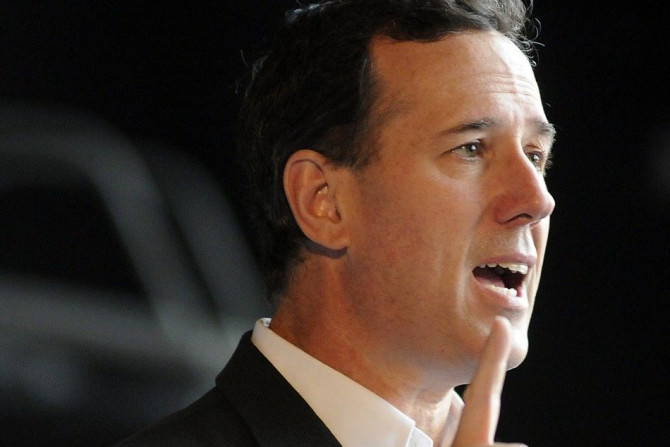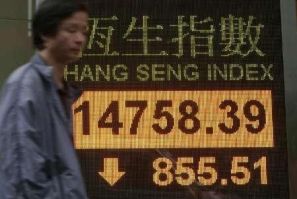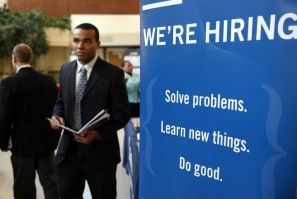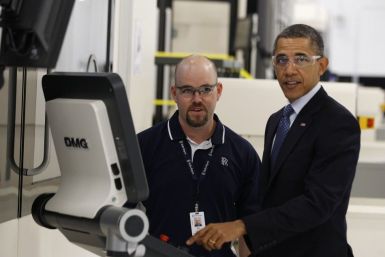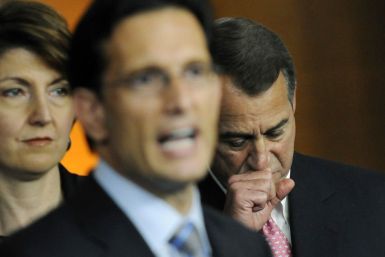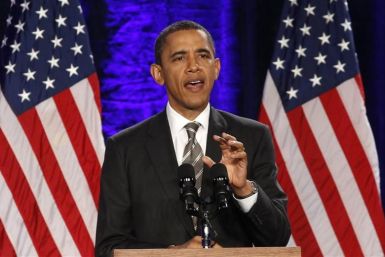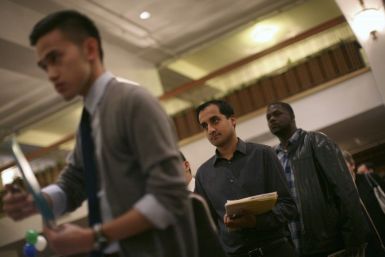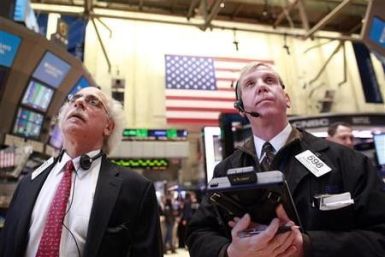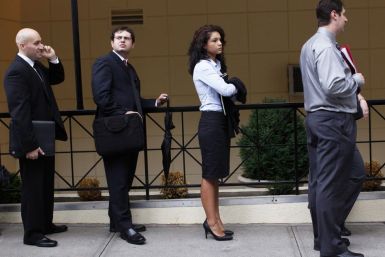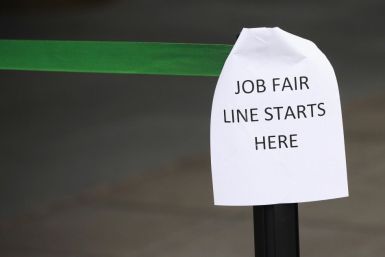Greek Finance Minister Evangelos Venizelos will run unopposed for the leadership of the Socialists, party officials said Sunday, as the political focus shifts towards a parliamentary election now that Athens has secured a bond swap deal.
The economic picture got considerably messier this week, as positive data on job creation battled with gasoline-price-fueled inflation concerns in economists', policymakers' and consumers' minds. Joyous declarations that the economy is finally getting better have turned into more studious critiques of how the incipient recovery is actually affecting poor, working-class and middle-class people.
Many cities across the United States are still scrambling to help their residents overcome the economic recession that officially ended more than two years ago, according to a survey released on Friday by the National League of Cities.
President Barack Obama Friday told Rolls Royce workers in Virginia that day by day, we're restoring this economy from crisis.
Stocks rose on Friday, adding to their best two-day run in nearly three months, after a report showed the economy added more jobs than expected in February.
Republicans responded to a better-than-expected February jobs report Friday, detracting any credit from President Barack Obama and remaining pessimistic about unemployment.
President Barack Obama's four years in office is getting the Hollywood treatment, including narration from actor Tom Hanks, in a 2-minute trailer teasing audiences for the 17-minute documentary, The Road We Traveled.
U.S. employers hired more than 200,000 workers for a third straight month in February, indicating that companies are feeling more upbeat about the recovery.
Stock index futures edged lower on Friday after their strongest two-day gain in nearly three months and ahead of a report likely to show employment grew solidly for a third straight month.
The U.S. Labor Department has reported that the unemployment claims increased modestly by 8,000 for the week ending March 3, with a seasonally adjusted initial claims figure of 362,000, indicating that the job market condition is improving.
The result should clear the way for the European Union and International Monetary Fund to release a 130 billion euro bailout package agreed with Greece in February.
A lack of policy direction in North Africa is jeopardizing the already-sluggish economic recovery according to a report by Capital Economics.
One late-night visit by the FBI was all it took for the notorious hacker known as Sabu to switch sides and become a valued snitch.
Amanda Clayton, a Detroit woman who made headlines after admitting that she still collected food stamps despite a million dollar lottery win, has now been removed from the food assistance program. Officials from the Michigan Department of Human Services confirmed that Clayton officially will not receive $200 a month in benefits, MSNBC reported.
The number of Americans filing for jobless benefits unexpectedly rose last week, but not enough to change perceptions that the labor market was strengthening.
New claims for unemployment benefits unexpectedly rose last week, a government report showed on Thursday, but not enough to change perceptions that the labor market was strengthening.
Germany's industrial output rose 1.6 percent in January, according to data released by the nation's Economy Ministry Thursday, beating expectations through a jump in construction and manufacturing output and raising hopes Europe's largest economy will bypass a recession.
Wall Street opened higher on Thursday as strong uptake by investors in Greece's debt swap fed optimism a deal could be completed by a deadline later in the day, staving off a messy default.
Claims for jobless benefits rose to 362,000, but is still hovering around a 4-year low for the fourth consecutive weeks, underscoring Federal Reserve Chairman Ben Bernanke's view that the U.S. economy has to show stronger growth to ensure that more Americans can find jobs.
Greece moved closer on Thursday to concluding a bond swap deal with private creditors that it desperately needs to stave off a messy default and buy time to repair its exhausted economy.
U.S. employers planned slightly fewer layoffs in February than the previous month, but the overall pace of corporate downsizing is up 18 percent over last year, global outplacement firm Challenger, Gray & Christmas Inc. said in a report Thursday.
Employers probably hired more than 200,000 workers for a third straight month in February, indicating that companies are feeling more upbeat about the U.S. economic recovery, economists said before a report this week.


